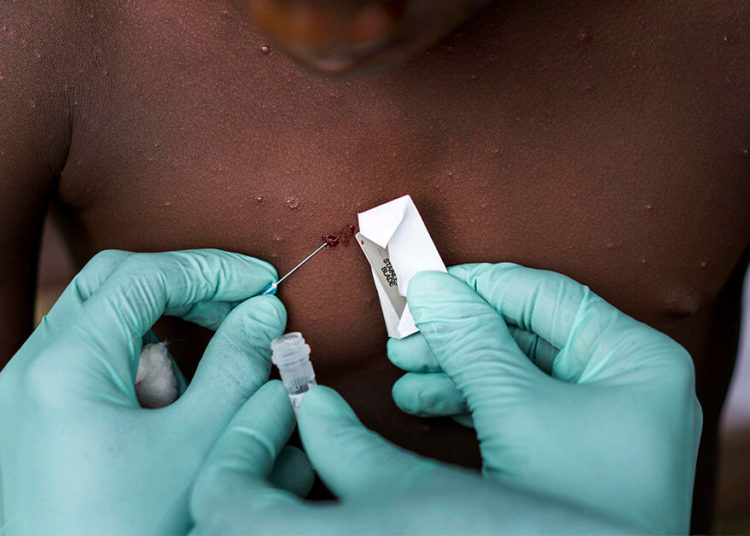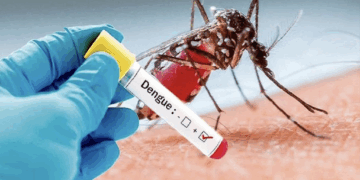Just as Nigerians are beginning to breathe a sigh of relief from the COVID-19 pandemic, fresh concerns have arisen from the ongoing monkeypox infection. Monkeypox is not new in Nigeria but the current spread of the virus across countries has given it attention.
As at 29th May 2022, the Nigeria Centre for Disease Control (NCDC) said it has confirmed 21 cases of monkeypox with one death in nine states and the Federal Capital Territory (FCT).
The Centre identified the states as Adamawa (5), Lagos (4), Bayelsa (2), Delta (2), Cross River (2), FCT (2), Kano (2), Imo (1), Rivers (1), adding that the death was reported in a 40-year-old patient who had underlying co-morbidity and was on immunosuppressive medications.
NCDC listed the symptoms of monkeypox as sudden fever, headache, body pain, weakness, sore throat, enlargement of glands (lymph nodes) in the neck and under the jaw, followed by the appearance of a rash (often solid or fluid-filled at the onset) on the face, palms, soles of the feet, genitals and other parts of the body.
It however, said that although Nigeria’s risk of exposure to the monkeypox virus is high based on the recent risk assessment conducted at NCDC, the current situation in-country and globally has shown no significant threat to life or the community that can result in severe disease or high case fatality rate.
A public health consultant, James Idia, said monkeypox is not new in Nigeria. “It is just for us to continue to observe the public health measures and of course we are somehow used to that now due to the COVID-19.”
He, however, urged health workers to be conscious of the virus while attending to patients who may present themselves with symptoms similar to that of monkeypox.
In the same vein, the NCDC emphasises that members of the public should remain aware of the risk of monkeypox and adhere to public health safety measures, specifically by reporting to the nearest health facility if they notice the known signs and symptoms of the disease.
“Healthcare workers are to maintain a high index of suspicion for monkeypox and report any suspected case to the relevant state Epidemiology Team for prompt public health intervention including sampling for confirmatory testing,” the Centre cautioned. The Centre also stated that genomic surveillance was ongoing at NCDC’s National Reference Laboratory in Abuja, and so far, all of the cases have been confirmed to be caused by West Africa clade monkeypox virus.





